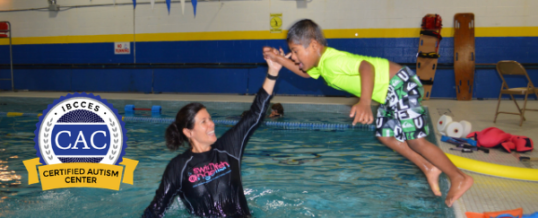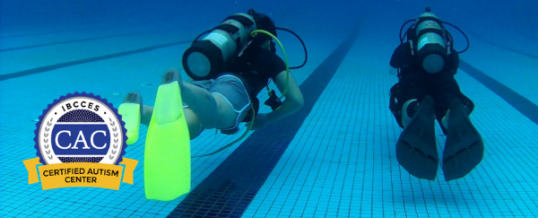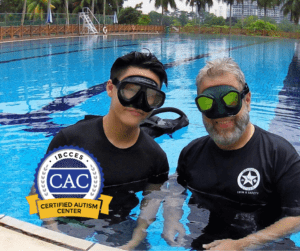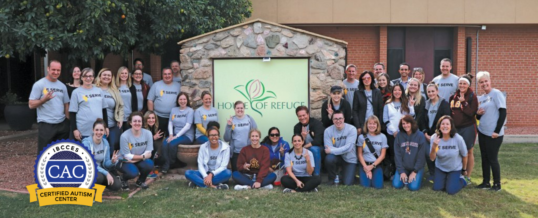Swim Angelfish, an adaptive swim program that began in Connecticut, was recently awarded the Certified Autism Center™ designation by the International Board of Credentialing and Continuing Education Standards (IBCCES).
Parents with children on the autism spectrum often find selecting extracurricular activities a challenge due to sensory needs and safety concerns. By completing the training necessary to earn the Certified Autism Center™ (CAC) designation, Swim Angelfish has gone above and beyond their already established programming geared toward these individuals to equip themselves with even more knowledge and best practices to ensure children with autism and other sensory disorders will enjoy the best possible experience that caters to their needs.
AUG








